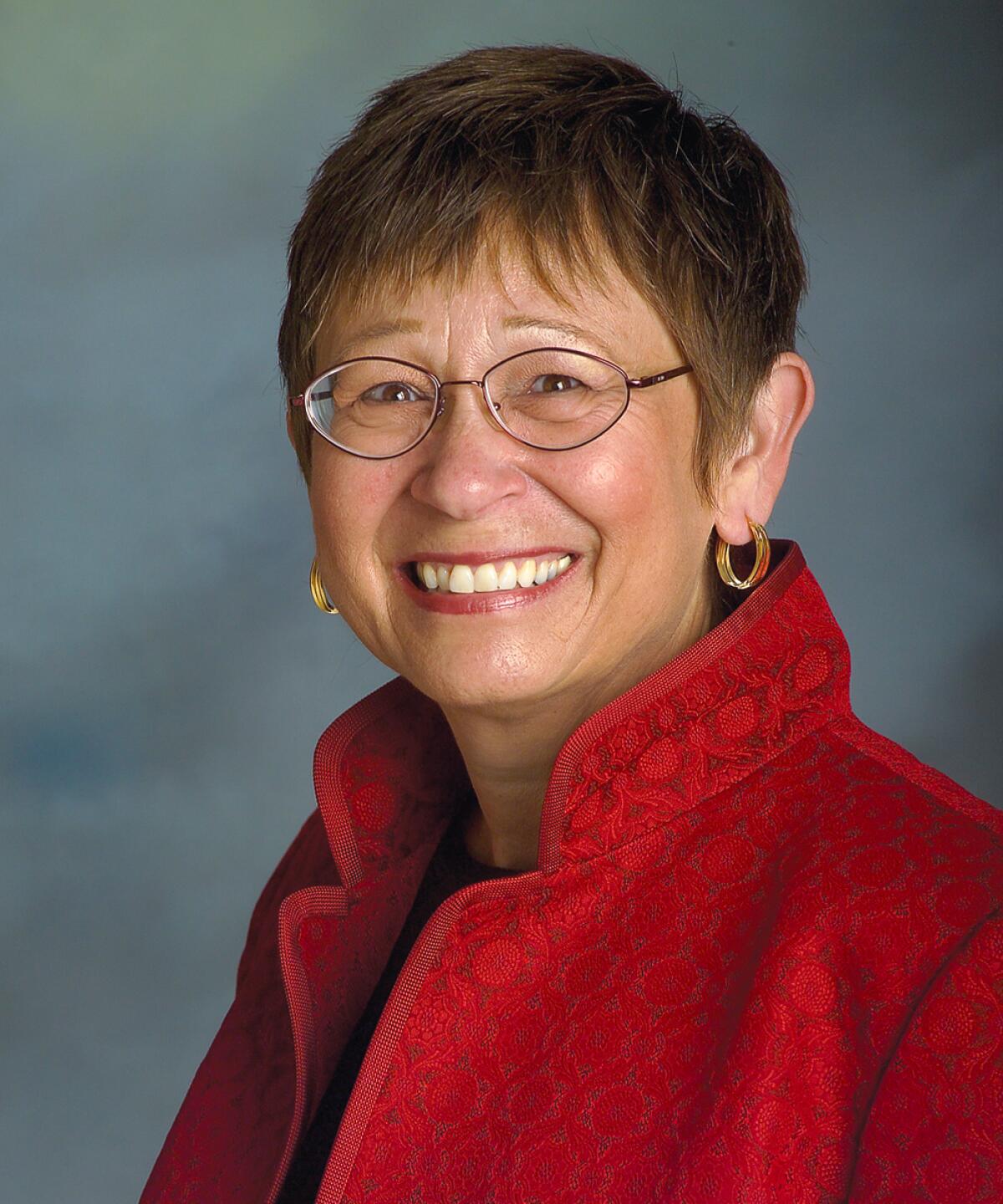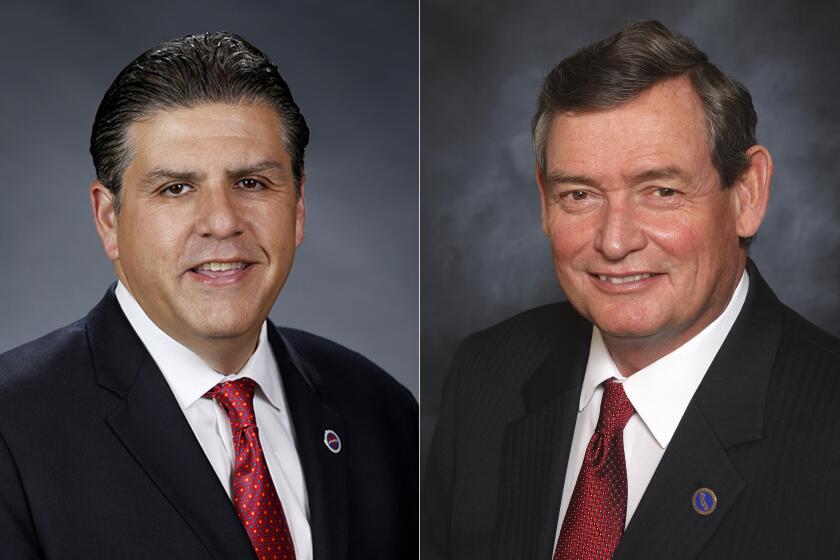Former Cal State Northridge President Jolene Koester named interim CSU chancellor

Former Cal State Northridge President Jolene Koester will serve as the interim chancellor of the California State University following last month’s abrupt resignation of Joseph I. Castro, who was under scrutiny over how he handled allegations of sexual misconduct by a top administrator.
Koester, 74, will assume the role on May 1 and serve for 12 months while the Board of Trustees searches for a permanent chancellor. She will be the first woman to serve as CSU chancellor in more than 30 years, and the second woman to hold the position.
“The CSU and its 23 campuses make a significant impact on California and the nation, and I am deeply humbled by the opportunity to serve as their interim chancellor,” Koester said in a statement. “The commitment of our world-class faculty, staff, administrators, executives, and trustees deeply align with my values to provide life-changing educational opportunities for our students. I look forward to learning and providing my skills to guide the university during this transformational time in CSU history.”
Koester told The Times that Trustee Debra Farar — the longest-serving trustee in Cal State board history, whose last meeting was Wednesday — reached out to her about the position shortly after Castro resigned. Koester weighed the decision for 30 minutes before agreeing to be considered.
“I think I have integrity…. I know how to bring people together — I had a record of that at CSUN,” she said. “Presidents and leaders don’t ever accomplish anything on their own.”
Koester has inherited a system that has been buffeted in recent months by outcry over Castro’s handling of sexual harassment and workplace harassment allegations while he was president of Fresno State, and the $401,364 payout package he received after he resigned.
In 2020, Castro was named CSU chancellor just three weeks after he negotiated a lucrative settlement agreement for a former vice president under investigation for allegations of sexual misconduct, bullying and intimidation. Then-Chancellor Timothy P. White authorized the settlement. Castro previously told The Times that he had not informed the board of the investigation or the settlement, believing White would do so if he deemed it necessary.
The move follows a Times investigation which reported that CSU has paid more than $4 million to 11 former executives since 2015 with little accountability.
Faculty, students and staff have called for reforms of retreat rights — which have allowed executives, even those embroiled in controversy, to become faculty should they resign from their top post — and of a special program that, according to a Times investigation, has paid departing executives millions in recent years.
Koester was eligible for the program at the time of her departure from CSUN but, according to board minutes, elected in lieu to become a rehired annuitant — a former employee who has received retirement benefits and has accepted limited CSU employment. She believes the board’s commitment to evaluate the program was a smart decision.
“There are practices in higher education, and frankly any area of business, that periodically need to be looked at and retooled,” she said.
The Board of Trustees announced Tuesday that it is taking action to review existing policies and has halted the transition program until further review. Additionally, CSU will launch a systemwide assessment of Title IX procedures and an investigation into the incident at Fresno State.
Koester acknowledged that there’s work to be done to restore trust within the community.
“What I’m going to be focusing on is renewing trust and building trust among key constituents,” she said, referring to the the board, campus presidents, faculty and leadership through the Cal State Academic Senate and the Cal State Student Assn. “While there’s been some turmoil, there’s still great work going on in the 23 campuses of the CSU.”
Koester, who was born in Minnesota, currently serves as a senior consultant for American Association of State Colleges and Universities. She was Cal State Northridge president from 2000-2011, during a time when student population increased by more than 25%, from 29,000 to nearly 37,000. Under her tenure, Cal State Northridge increased graduation and retention rates.
She started her CSU career in 1980 as an assistant professor in the Department of Communication Studies at Sacramento State. During her 17 years there, she served as an associate professor, professor, department chair, assistant vice president, associate vice president, vice president for academic affairs and provost. Prior to that, she worked at University of Missouri, Columbia and the University of Minnesota.
“The decision to step down as president was a very difficult one, but after 11 and a half years, I wanted the chance to try to reinvent myself one more time,” she said in a 2013 interview.
Koester received her master’s in communication arts from the University of Wisconsin-Madison, and a Ph.D. in speech communication from the University of Minnesota.
She currently lives in San Diego and will soon move to Long Beach, where CSU is headquartered.
“With her institutional knowledge of the university and long-standing history of service to higher education, Dr. Koester is the perfect person to lead the CSU during this time,” Board Chair Lillian Kimbell said in a statement. “CSU’s graduation and retention rates have reached all-time highs, but there is still a great deal of work to be done. We appreciate Dr. Koester’s passion and commitment to rejoin the university.”
During Tuesday’s board meeting, members of the California Faculty Assn. — the union that represents more than 29,000 employees — demanded a chancellor search open to faculty, students and staff.
Historically, such searches occur behind closed doors. But events around Castro’s hiring have heightened demands for more transparency.
More to Read
Sign up for Essential California
The most important California stories and recommendations in your inbox every morning.
You may occasionally receive promotional content from the Los Angeles Times.












